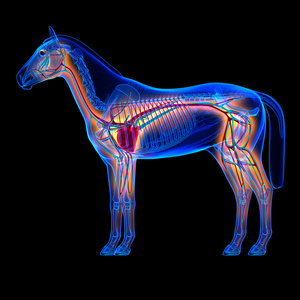Horses, loyal companions and labor partners to humans, play a crucial role in agriculture, sports, and leisure. Maintaining the overall health of horses involves a critical aspect—cardiac examination. Regular cardiac checks allow us to detect and address potential heart issues early on, ensuring that horses remain in optimal condition.
Why Conduct Heart Examinations for Horses?
The horse’s heart is a core organ responsible for pumping blood, supplying oxygen, and delivering nutrients throughout the body. Any issues with the horse’s heart directly impact its overall health and performance. Veterinary examinations assess the structure and function of the heart, detecting potential abnormalities such as arrhythmias and myocarditis.
Methods of Heart Examination for Horses
Auscultation Examination: Veterinarians use a stethoscope to carefully listen to the sounds in the heart region. Abnormal heart sounds may indicate underlying issues.
Ultrasound Examination: Traditional methods like auscultation and palpation have limitations in assessing the horse’s heart. Veterinary ultrasound technology uses high-frequency sound waves to provide detailed, three-dimensional images, revealing subtle internal structures and movements. This advanced technique enables veterinarians to comprehensively understand the horse’s cardiac status, including chamber size, wall thickness, valve movement, and blood flow velocity.
Electrocardiogram (ECG): ECG records the electrical activity of the heart, aiding in the assessment of rhythm and the detection of electrophysiological issues.
Applications of Ultrasound Examination for Horses
Ultrasound examination serves various purposes:
Diagnosis of Cardiomyopathy: Helps determine if the horse suffers from heart muscle disease, assessing the contraction and relaxation functions of the myocardium.
Valve Evaluation: Used to detect and assess the function of the heart valves, including identifying issues like regurgitation or stenosis.
Blood Flow Velocity Measurement: Enables veterinarians to measure blood velocity in the heart and vessels, evaluating the efficiency of blood circulation.
Common Heart Issues in Horses
Myocardial Disease: Can lead to ineffective pumping of the heart, resulting in symptoms like fatigue and rapid breathing.
rrhythmias: Abnormal heart rhythms may be indicative of heart issues or underlying diseases.
Pericardial Effusion: Accumulation of fluid around the heart, affecting normal expansion and contraction, requiring prompt intervention.
The Importance of Regular Examinations
The overall well-being of horses is closely tied to their cardiac health. Regular cardiac examinations allow for early intervention before issues become severe, preventing potential health risks. For horses involved in sports or other high-intensity activities, routine cardiac checks are crucial to ensuring peak performance.
Maintaining the cardiac health of horses is a necessary step in guaranteeing their overall well-being and efficient work. By adopting advanced examination techniques and scheduling regular check-ups, we can detect potential problems early on. Among these techniques, equine cardiac ultrasound examinations offer accuracy and real-time insights, providing timely and effective treatment for our equine companions.
Post time: Nov-21-2023




